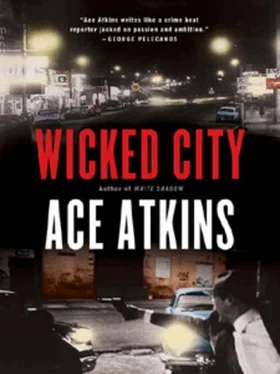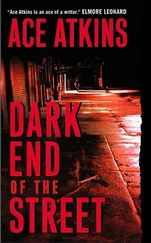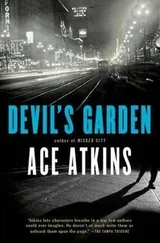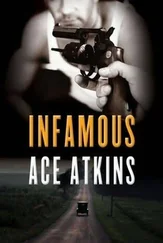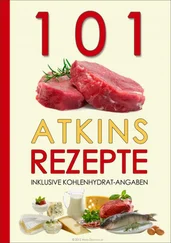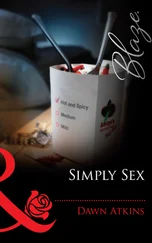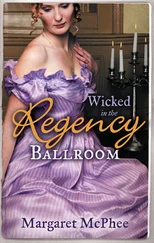“Will your dad be worried for you?” she asked.
“Naw,” he said. “When my daddy gets drunk, he says he won me in a poker game and that the only reason my bitch of a mother left without me was on account I didn’t belong to her or nobody.”
“Is that true?”
“Hell, I don’t know. Reuben once told me he’d known a mule in the Army who could talk and sing.”
“Who’s your dad?”
“Reuben Stokes.”
He looked over at Lorelei for recognition, but she was still looking at the ceiling, and when she felt the focus upon her she crooked her arms around his neck and kissed him again.
“Reuben was in the Philippines during the war and got captured,” Billy said. “They were taking him and everyone on the island on a long march, and Reuben waited till the guards looked the other way and rolled into a ditch full of piss and shit. When the damn Japs passed him, they figured he was dead. He said he even left his eyes open and stuck out his tongue all funny. He hightailed it after they left, and fought up in the mountains till the troops came back.”
“My daddy was too old for the war.”
“Is he still alive?”
“I don’t know.”
“What about your mamma?”
She didn’t say anything and he kissed her some more, and his small chest felt like it would just explode. And then she told him everything.
SHE WAS ONLY THIRTEEN WHEN THE LONG BLACK CADILLAC pulled off to the side of the highway and she saw the fat man taking a leak into the mosquito ditch. She was long-legged and scabby-kneed, with black hair that grew down past her rump, hair that women in church whispered was pure vanity. As the man finished, she kept picking corn to fill a wire basket, and then ran a red bandanna over her neck and across her face before tying back her hair. He looked to be rich, not only with the car but by the way he stood and looked down off the road at all those poor people having to work on a hot summer day. He shook his head and knocked back a little from a silver flask that reflected hard in her eyes. It must’ve been about a minute later that he whistled for her in the way that a man whistles for a beaten dog.
She came.
And she hated herself for that, and would hate herself all the way from the summer of ’50 onward, but she was a country girl with not a thought in her head. The only world that she knew was a clapboard shack fashioned from scavenged wood and twisted metal from wrecked automobiles and the half acre that her daddy rented out from their neighbor. A rotten-toothed, soulless man who cheated and lied more than the pharaohs of Egypt.
She walked to the rich man, her head down, and he took a step toward her, pulling her from the red dirt road and onto the shoulder where he stood. He wore a checked gray suit with a red tie and a straw cowboy hat. He smiled at her, looking down at her face, as he brought it up with a light finger and smiled for a long time.
She didn’t smile back on account of the big space between her teeth.
“How old you, girl?”
“Thirteen, sir.”
“Well, you look to be sixteen from where I’m standin’,” he said. “Turn around.”
And she did, as stupid and blind as a trained dog waiting for a rancid piece of meat, and he looked at her long legs and scabby knees in that dress made out of old gingham and flour sacks. The man pulled her hair back and twisted her head from side to side.
She pulled away and looked into the corn for her father, but he was gone somewhere into the woods. Or was it town ?
“You want to take a ride?”
“No, sir.”
He reached into his gray coat, and she could see he’d been sweating the way big men do, soaking their fat stomachs and under their arms, and she saw the flash of two golden pistols, as gold as pirate’s treasure, and he saw the smile, too, and handed her a card.
“Can you read?”
She shook her head.
“’Course not.”
She looked at him.
“You bring yourself to the big city,” he said. “You hear me? What’s your name, girl?”
And she told him, but she’d soon forget that name because it was so country that it made men laugh, and he laughed, too. It would be a couple years before she’d start calling herself Lorelei, after a nickname they’d given her at the Rabbit Farm.
“You come lookin’ for me,” he said. “Anybody in Phenix City will know where to find me. Bert Fuller. I’ll make sure you get some work.”
She nodded and, despite herself, felt her lips spread against that space in her buckteeth, and he kind of winced at her and said, “Don’t smile so much.”
She dropped her head.
“Come on, come on,” he said. “No need to be frownin’, with a face and legs like that. I bet them country boys chase you plenty, huh?”
“Naw.”
“Naw?” he said, laughing. “You are as country as corn bread. You in those sacks and bare feet. You ever feel what it’s like to wear a real pair of shoes? Look at that mud caked between your toes. You’re too good for this, little girl. You hitch a ride, you take a bus whenever you want, but you come see me.”
“Yes, sir.”
“Sir?” he said. “Honey, hush.”
She looked at him again, as if her chin had been lifted again, only feeling that he wanted to see her eyes without even the slightest touch. His face was broad and fat, pink-skinned and fleshy. His hair was buzzed above the ears, up to the cowboy hat, like men in the service. He winked at her, knocked back some more from his flask, and passed it to her.
She shook her head.
“It ain’t the demon’s blood like they tell you,” he said. “It’s just bourbon.”
And she looked down the endless red-dirt road for another car coming or her father or any sign of life by the clapboard house made from wrecked cars and trash. But there was only the wind and the unbearably hot sun, and as she took a drink the bourbon was hotter than the air and made her face turn hot and glow. But she kept drinking, not knowing it wasn’t like water, and the muddy-colored stuff ran down her chin and on her dress, and it smelled like the way her daddy smelled on Saturday nights, only without the cigarettes.
Bert Fuller took back his flask, wiped her chin with a scarred knuckle, and opened the door to the big, long Cadillac.
“See that star on the card?” he asked. “That means I’m the assistant sheriff. That means I’m real important. You understand?”
And then he pulled away, giving her a preacher’s wave before disappearing into a cloud of dust and becoming a black ink spot on the horizon that burned away into the molten sun.
Two months later, she found a ride.
She’d never been to a city before, and she’d saved pennies to buy shoes and borrowed a cotton dress from her best friend at church, May, who’d also given her a dollar she’d been saving since she was twelve. With the dollar, the new shoes, and the old dress, she hopped out from the Chevy pickup truck loaded with hay and chickens and turned and looked at all the buildings and people milling about. It was Friday afternoon, and there looked to be plenty of men from the Army around and she felt safe with that, finding one boy and showing him Deputy Bert Fuller’s card – now so crunched and wrinkled it was soft in her hand – and the Army boy just shook his head, chewing gum with a cocky smile, and winked at her.
The wink made her pull the dress tight against her chest, and she kept walking toward the lights, past bars with signs reading GIRLS , GIRLS , GIRLS and QUICK MONEY , and she got a few whistles and catcalls, and pretty soon she was sweating with all the noise of the music and the ringing of slot machines and the sight of things she’d never seen – like a big black-haired woman dancing on a stage with tassels on her titties, whipping them around in circles. Pretty soon, she was down by the bridge and could see the big, wide Chattahoochee, and it was the most beautiful thing she’d ever seen, and the city beyond it, over the river, just shined with light so bright that it hurt her eyes .
Читать дальше
